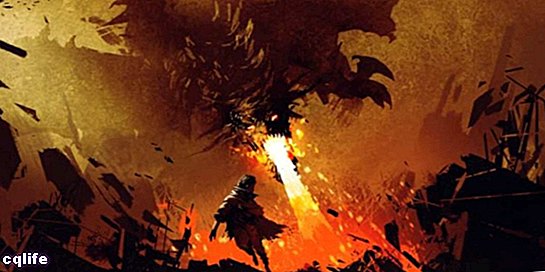We explain what fiction is, the origin of the term, importance for humanity and characteristics. Also, what types of fiction exist.

What is fiction?
Fiction is the name given to the set of imaginary or simulated worlds that make up the Arts narratives (the literature, the movie theater, the cartoon), like the popular reverie, and which may be more or less similar to the reality in its characteristics and its fundamental laws.
The word fiction comes from Latin fictus ("Invented"), derived from verb pretend ("pretend"). It is the name we give to the artistic genre opposed to the "non-fiction" of the essays, documentaries, Chronicles or reports, that stick as closely as possible to reality.
On the contrary, the main characteristic of fiction is the free recreation of the real, in a similar way to what happens in dreams, creating whole worlds different from ours, for example, or trying to answer what would have happened if such or what event in history occurred or had not occurred.
The possibility of creating and sharing imaginations and daydreams, that is, of creating fictions with the mere objective of entertaining and living mentally experiences others, it is a characteristic and extremely important of the species human. Historians such as the Israeli Yuval Noah Harari (1976-) consider that this is one of the traits responsible for our evolutionary success, which allowed us complex levels of social organization through the imaginary.
Be that as it may, the ability to create and tell fictions, together with the mastery of fire, the taboo of incest and the ceremonial burial, constitutes one of the typical features of humanity. It accompanies us from the primitive horde to the present day.
Furthermore, it has been the subject of frequent reflection among philosophers, thinkers, writers and artists, since Plato (c. 427-347 BC) and Aristotle (384-322 BC) in the antiquity classical, up to modern authors such as Walter Benjamin (1892-1940) or Susan Sontag (1933-2004).
Types of fiction
Fiction can be classified from many points of view, especially considering the type of artistic resources used to create it. Thus, one can speak of literary fiction (the novel, the story), cinematographic fiction, cartoon fiction or even popular imagination.
Another very common way of classifying fictional productions has to do with the type of possible world they stage, compared to the real world. Thus, we have:
- Fiction realistic, whose possible world is governed by more or less the same rules as the real world, or that at least tries to make itself as indistinguishable as possible from the real world.
- Fantasy fiction, whose possible world openly breaks with the laws of the real world, allowing supernatural forces such as magic, ghosts, superpowers, etc., since the fantastic world is governed by its own autonomous rules.
- Science fiction. Originally a narrative subgenre, Science Fiction has become one of the main ways of imagining in contemporary times, characterized by an exaggeration or extrapolation of the speech scientific, to build fictional scenarios, endowed with a certain scientific explanatory framework. That is, without scientific discourse or a certain scientific point of view, it would be fantastic fictions.
